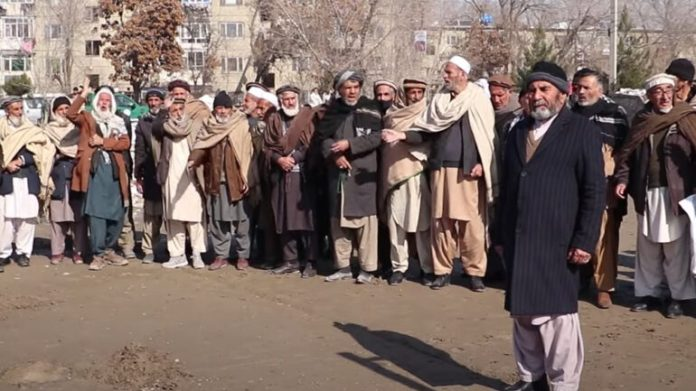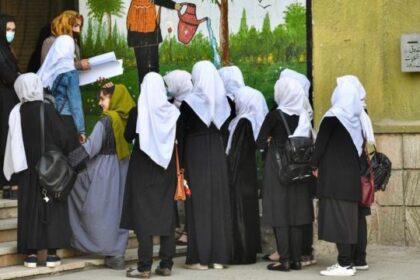RASC News Agency: On Saturday, April 13, a group of retired Afghanistani civil servants gathered in protest outside the General Directorate of Pension Funds in Kabul, demanding urgent resolution of their long-delayed pension payments. The demonstration, marked by growing frustration and economic desperation, highlighted the retirees’ years-long struggle to receive the compensation legally owed to them. The protesters, many of whom are elderly and struggling to survive, called on Taliban leader Hibatullah Akhundzada to fulfill his promises and release their pensions, which have remained suspended under the current administration.
In a voice recording shared with RASC, one protester conveyed deep anguish over the ongoing neglect:
“For four years, we’ve been shuffled from one government office to another. No concrete action has been taken to resolve our plight. Each passing day only deepens our suffering.” He further stated that despite a formal directive issued by Akhundzada months ago instructing authorities to address retirees’ concerns, the decree has produced no results:
“It has been four months since the leader issued that order, yet nothing has been implemented. We remain trapped in uncertainty.”
The retiree described the deteriorating conditions faced by many in his generation:
“Countless pensioners have died in poverty during this period. Those of us who remain are unable to afford even a loaf of bread. We can no longer meet the most basic needs of our lives.” Compounding the outrage, sources close to the Taliban leadership confirmed on Friday that Akhundzada had instructed the Taliban’s Minister of Finance and the Governor of the Central Bank to allocate $9 million to religious seminaries in Pakistan. This controversial directive has emerged amid widespread financial distress within the Taliban’s own ministries, prompting orders to reduce staff across all departments by 12 percent to address budget shortfalls.
Retirees have strongly condemned the decision, insisting that domestic obligations must take precedence over ideological contributions to foreign institutions. They argue that, in a time of national economic hardship, the Taliban government has a moral and constitutional responsibility to prioritize the welfare of its own citizens especially those who dedicated their lives to public service. “We are not asking for favors,” said another protester. “We are demanding what is rightfully ours. The government must stop ignoring its responsibilities and start addressing the real struggles of its people.”
These protests underscore the widening disconnect between the Taliban’s fiscal decisions and the lived realities of ordinary Afghanistani citizens. As public dissatisfaction mounts, especially among vulnerable groups like retirees, calls for accountability and socioeconomic justice are growing louder across the country.






